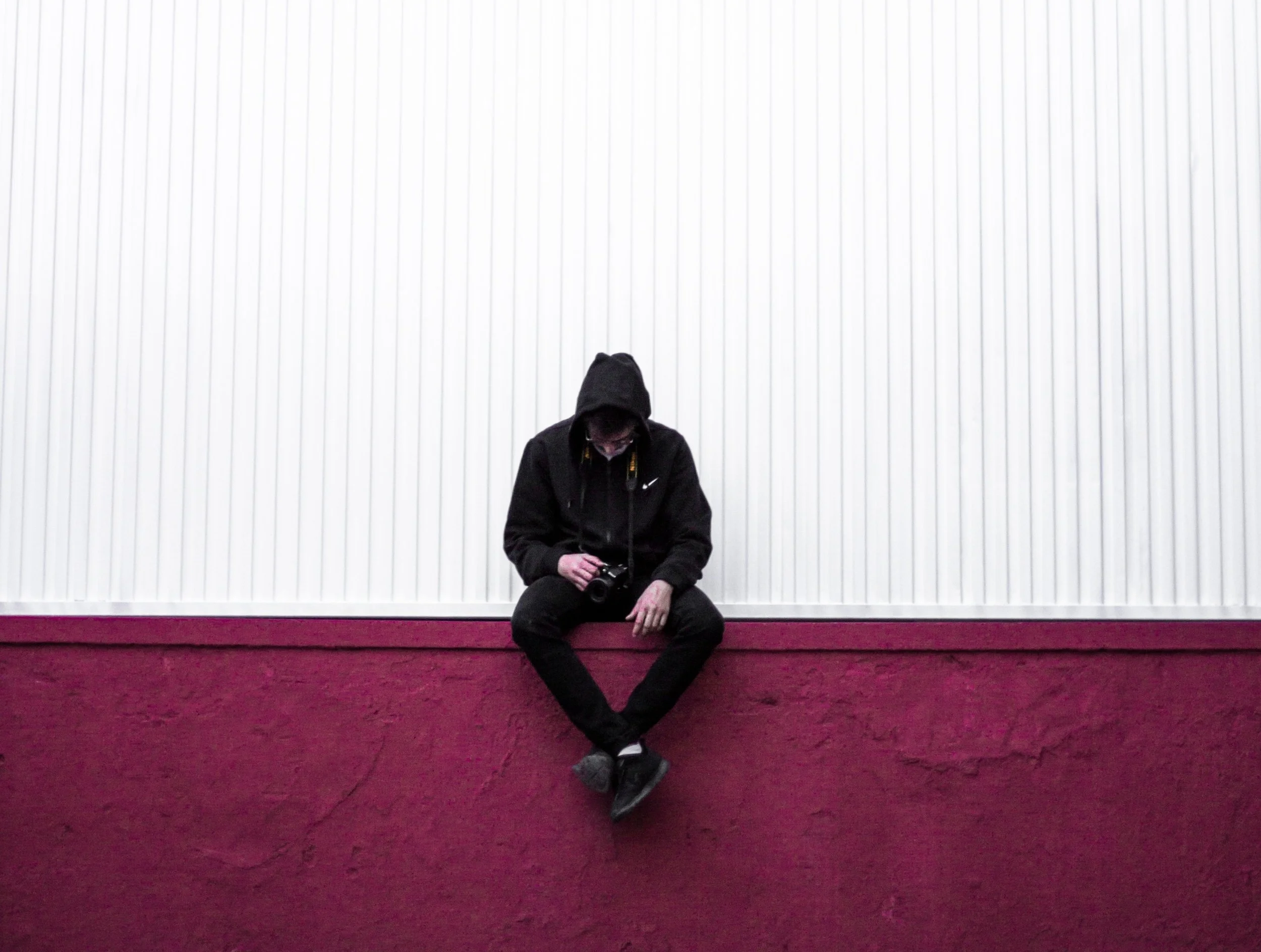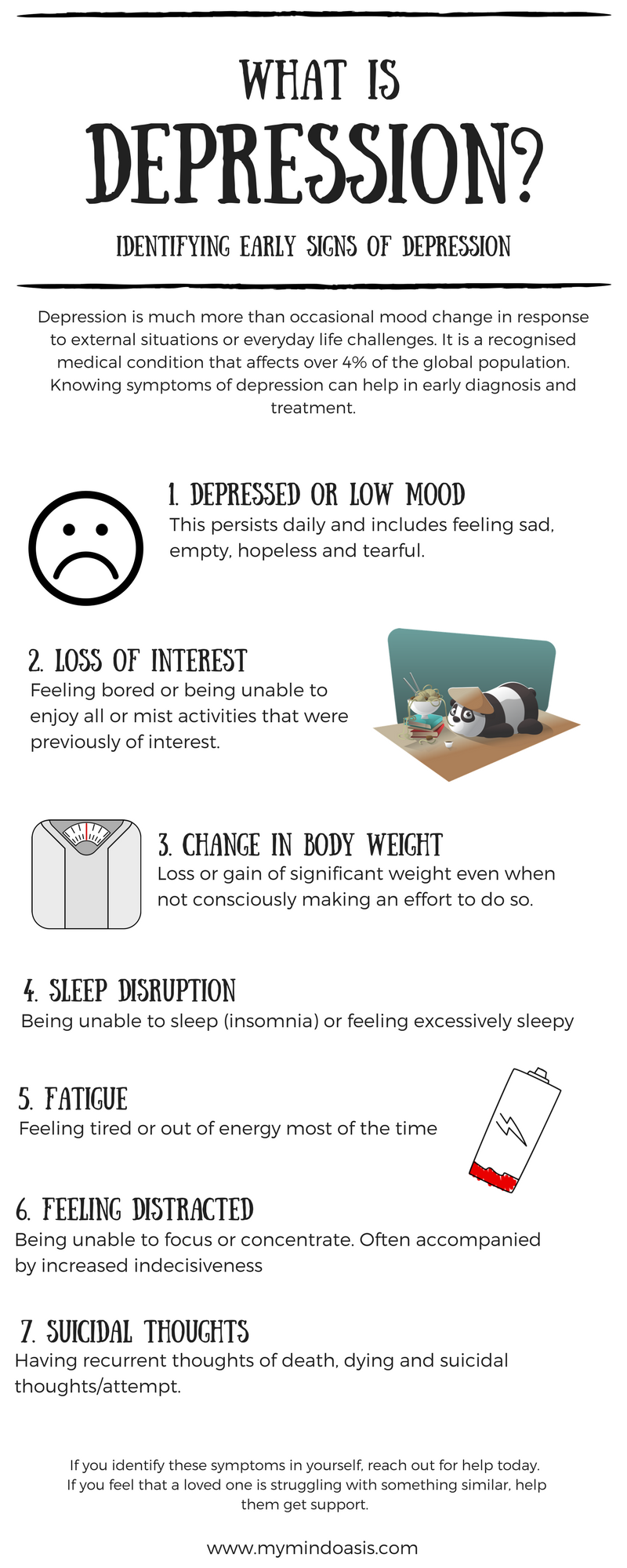Photo by Jose López Franco on Unsplash
WHAT IS DEPRESSION - WHEN TO GET HELP - AND HOW?
The term depression is being used quite commonly these days. While I would like to believe this to be a mark of growing awareness regarding mental health, that is not exactly true! Often, ‘depression’ or ‘depressed’ are used loosely as synonyms for sadness. This leads not only to misunderstanding, but even trivialisation of a debilitating health condition, preventing people from reaching out for timely treatment. To avoid labeling all sadness as depression, and more importantly, to know the warning signs – it is important to understand what depression is.
What is depression?
Depression is a recognised medical condition that causes persistent feelings of sadness, loss of interest and severely impacts a person’s ability to carry out daily tasks and roles. In the context of mental health, depression refers to a category of disorders called ‘Depressive Disorders’ (The Diagnostic and Statistical Manual of Mental Disorders [5th ed.; DSM–5; American Psychiatric Association, 2013]). According to the DSM-5, “The common feature of all of these disorders is the presence of sad, empty, or irritable mood, accompanied by somatic and cognitive changes that significantly affect the individual's capacity to function. What differs among them are issues of duration, timing, or presumed etiology.” (American Psychiatric Association, 2013 p.155)
This means that depression is much more than occasional mood change in response to external situations or everyday life challenges. The World Health Organization (WHO) estimates that globally over 300 million people suffer from depression.
SYMPTOMS
The most commonly recognised symptom of depression is low mood on a daily basis for most of the day – lasting for a period of at least two weeks. This may include feeling sad, empty, and hopeless and having frequent bouts of crying. In addition to depressed mood, some of the most common signs or symptoms of depression are:
Noticeable loss of interest in activities that were previously enjoyable
Significant change in body weight and appetite even when not consciously making an effort to loose or gain weight
Sleep disruption (insomnia), sleeping too much or being unable to get out of bed
Fatigue or feeling out of energy most of the day
Feelings of worthlessness or excessive guilt and constant pessimism
Feeling distracted, being unable to concentrate
Increased indecisiveness, irritability or restlessness
Recurrent thoughts of death and dying
Thoughts about ending life with or without a specific plan for suicide
If you notice more than four of these symptoms in yourself, it is a sure sign for getting help. However, keep in mind that these symptoms could also be an effect of certain medications and physical conditions. So, instead of relying on self-medication, it is all the more important to access professional help at the earliest to get appropriate treatment.
Depression is not…
“Just” sadness
Everybody experiences sadness or low mood at various points in life. It could result from major life changes such as losing a job or moving to a new city; it could be a response to bad grades or an argument with a friend, or even rainy weather. We all feel down from time to time. However, feeling depressed is different from being depressed.
A choice
Depression is a serious medical condition and not something you choose to be. It is a common misconception that ‘trying to be happy’ will help in overcoming depression. This often adds to guilt that the depressed person is already experiencing for feeling the way he/she feels.
Apparent
Friends and family members of depressed people often exclaim ‘…but he/she never looked depressed!’ Depressed people don’t look sad all the time. In fact, most people struggling with depression spend a lot of time and energy ‘appearing normal’.
A weakness
Depression is not a sign of weakness or an inability to handle challenging situations. Even though depression makes you feel tired, it does not mean you are lazy! Subscribing to this myth adds to the stigma and often prevents people from accessing treatment unless they reach a crisis situation.
Depression can be treated
Even though it is such a debilitating condition, depression can be treated.
Many people experience depression as an unrelenting heaviness that just wouldn’t go away. It affects your mental as well as physical health. It impacts your relationships, your productivity and performance at work and even your ability to be yourself. Unlike usual sad feelings (which disappear as circumstances change) depression does not leave unless properly treated. In fact, if left untreated, it often worsens and culminates into severe suicidal thoughts. The sooner treatment begins the better.
There are number of treatment options available. The first step to recovery is starting a conversation about how you feel. You might want to start by talking to a friend or family member. Often people are surprised by the support and understanding they receive from loved ones. Even if they don’t respond as supportively as you had expected, remember that you have taken a big step towards accepting yourself and your need for support.
Getting Professional Help
Usually the first point of contact for starting treatment for depression is a general physician or your GP. Making the first appointment is a difficult step that many people hesitate to take. However, most people who reach out for help wish that they had started the treatment sooner. You don’t have to live with depression for months or years before seeking support!
Talk to the GP about how you have been feeling and let them know about your concerns. They will ideally have a detailed conversation to understand your current state and also screen you for any suicide or self-harm risks. Being open and honest about your symptoms is essential in getting the right help. Depending on the severity of your symptoms, they will:
Prescribe medication or medical tests
Recommend further assessment by a specialist – usually a psychiatrist or clinical psychologist
Refer you for therapy – to a counsellor or psychotherapist
Your GP may recommend one or all of the above. Don’t hesitate to voice any concerns you may have about any suggested treatment. It’s OK to have questions.
A combination of medication and psychotherapy has been found to be effective for many people suffering with depression. In Berlin, therapy can be accessed either through your insurance or privately. It can be challenging to find a therapist if you don’t speak German, in which case private sessions are often the quickest way to get help. Association of Counsellors and Therapists (ACT) and Smart Expat are useful directories for the same. (I would be happy to answer any questions you have about this, so feel free to reach out!)
If you have serious thoughts about harming yourself in any way or don’t feel safe, don’t wait for a doctor’s appointment. In such a situation, go to your nearest hospital with an emergency service and let them know that you are worried about your safety. If possible, take a friend or family member along. In case you have to go alone, approach the attending staff at the hospital and inform them about your concerns regarding suicidal thoughts. Based on an assessment conducted by a nurse or a mental health professional, the next course of action is decided. Often, there are long waiting times. Don’t be put off if you are made to wait. And don’t be scared to ask for help!



